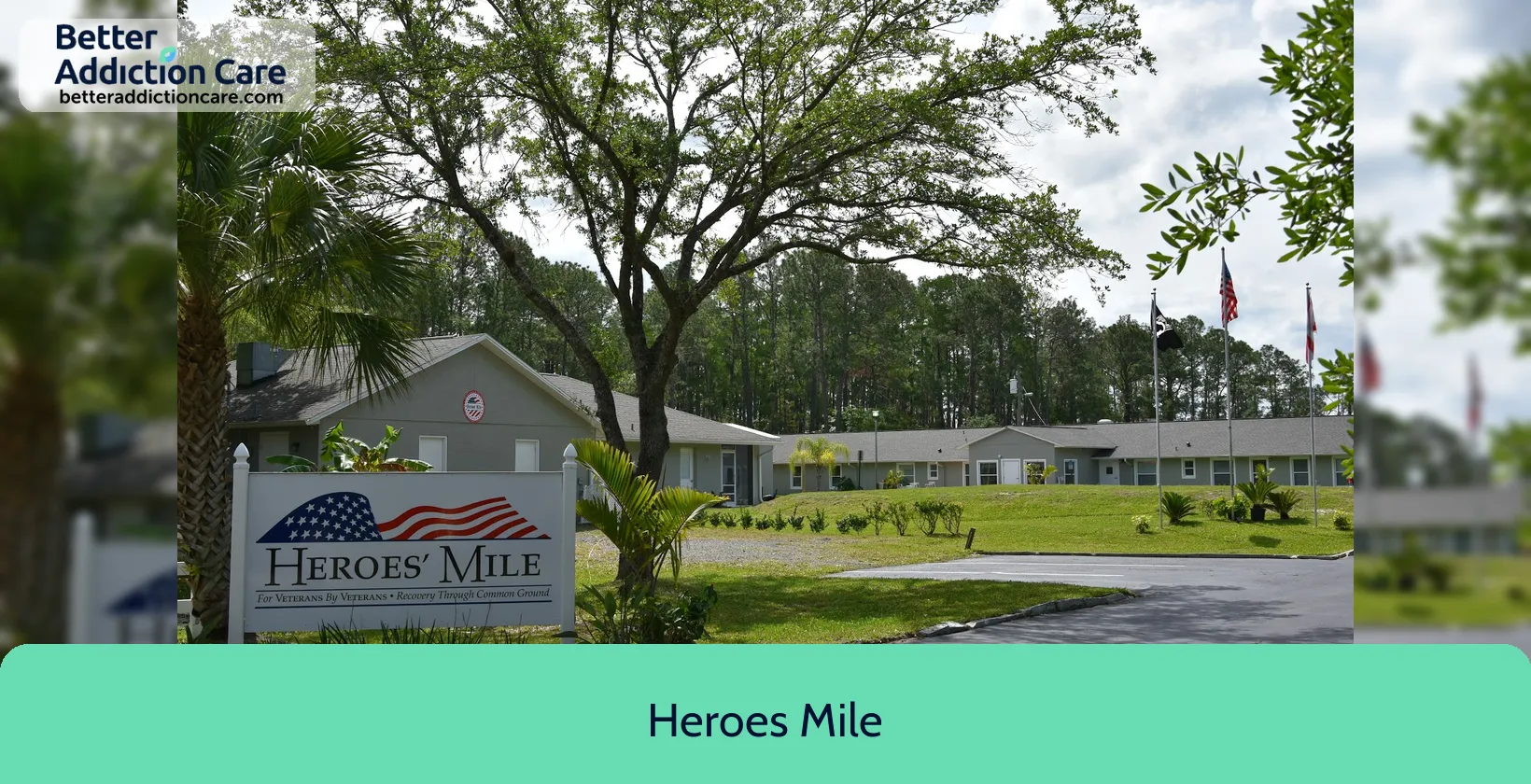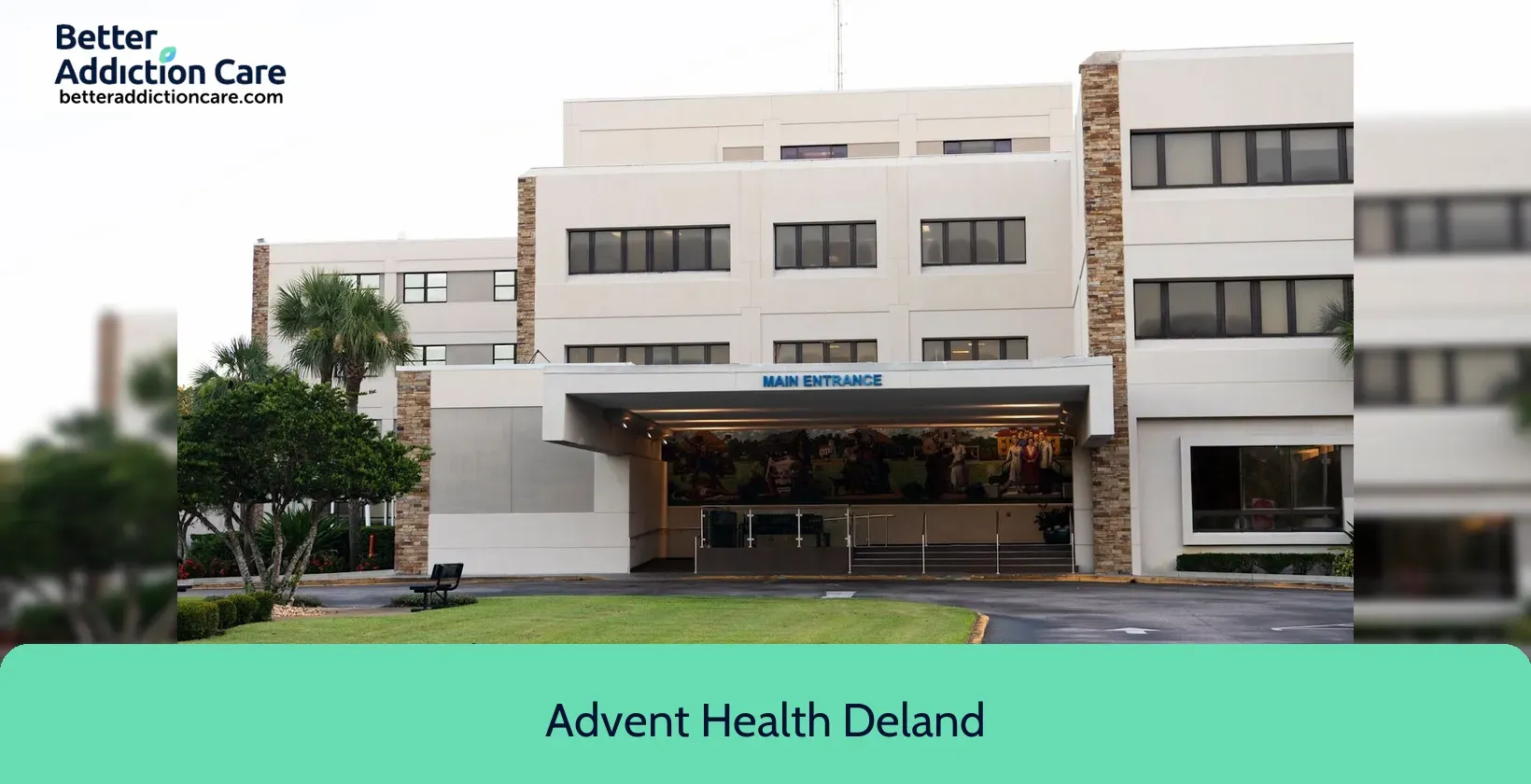WhiteSands Alcohol and Drug Rehab - Deland Alcohol and Drug Rehab

Overview
WhiteSands Alcohol and Drug Rehab - Deland Alcohol and Drug Rehab is a substance abuse treatment center for people seeking treatment near Volusia County. As part of their treatment modalities for recovery, WhiteSands Alcohol and Drug Rehab - Deland Alcohol and Drug Rehab provides creative arts therapy, recreational therapy, and experiential therapy during treatment. WhiteSands Alcohol and Drug Rehab - Deland Alcohol and Drug Rehab is located in Deland, Florida, accepting cash or self-payment for treatment.
WhiteSands Alcohol and Drug Rehab - Deland Alcohol and Drug Rehab at a Glance
Payment Options
- Cash or self-payment
- Medicaid
- Medicare
- Private health insurance
- Federal military insurance (e.g., TRICARE)
Assessments
- Comprehensive mental health assessment
- Comprehensive substance use assessment
- Interim services for clients
- Outreach to persons in the community
- Screening for mental disorders
Age Groups
- Adults
- Young adults
Ancillary Services
- Case management service
- Mental health services
- Social skills development
Highlights About WhiteSands Alcohol and Drug Rehab - Deland Alcohol and Drug Rehab
7.02/10
With an overall rating of 7.02/10, this facility has following balanced range of services. Alcohol Rehabilitation: 8.00/10, Drug Rehab and Detox: 6.00/10, Insurance and Payments: 6.00/10, Treatment Options: 8.06/10.-
Treatment Options 8.06
-
Alcohol Rehabilitation 8.00
-
Drug Rehab and Detox 6.00
-
Insurance and Payments 6.00
Accreditations
LegitScript:

Only programs and services that successfully navigate a stringent application process launched in 2018 are granted LegitScript certification. This stringent process ensures that only reputable providers of mental health and co-occurring substance abuse treatment are eligible to be featured on Google's network while complying with HIPAA privacy laws.
The Joint Commission:

The Joint Commission accreditation for addiction and behavioral health is a prestigious recognition signifying a facility's commitment to delivering high-quality care and safety for individuals dealing with substance abuse and mental health issues. It involves rigorous evaluations and assessments, ensuring patients receive evidence-based treatment and exceptional care. This accreditation demonstrates a facility's dedication to continuous improvement and ethical practices, building trust among patients and healthcare professionals seeking top-tier addiction and behavioral health services.
Treatment At WhiteSands Alcohol and Drug Rehab - Deland Alcohol and Drug Rehab
Treatment Conditions
- Mental health treatment
- Alcoholism
- Substance use treatment
- Co-occurring Disorders
Care Levels
- Detoxification
- Aftercare
- Outpatient
- Intensive outpatient treatment
- Regular outpatient treatment
Treatment Modalities
- Creative Arts Therapy
- Recreational Therapy
- Experiential Therapy
- Family counseling
- Fitness Therapy
Ancillary Services
Special Programs
- Clients with co-occurring mental and substance use disorders
- Veterans
- Active duty military
- Members of military families
- Clients who have experienced trauma
Get Help Now
Common Questions About WhiteSands Alcohol and Drug Rehab - Deland Alcohol and Drug Rehab
Contact Information
Other Facilities in Deland

7.20

6.68

6.85

7.62
DISCLAIMER: The facility name, logo and brand are the property and registered trademarks of Advent Health Deland, and are being used for identification and informational purposes only. Use of these names, logos and brands shall not imply endorsement. BetterAddictionCare.com is not affiliated with or sponsored by Advent Health Deland.
